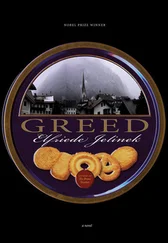Nothing is natural, yet everything is as it is by nature.
The child in Rainer cries out loud, the worst thing of all is arriving at the last moment and not finding a seat left in the tram and having to stand. Whining is useless. Grown-ups won't get up, but a child has to be prepared to stand up for a grown-up at any time. So there you are, jammed into an ugly dark forest of bodies each of which is just as unattractive, with no entrance or exit in sight. You're in for good and you've got to go the distance. Packed in among the rest. Hiding amid winter coats stinking of mothballs and pre-war anoraks. And somewhere or other (you're spared nothing) there are two good-looking youngsters, no doubt students, whose fathers have their own cars but do not have the time today to drive their son and daughter here and there, but there is a car, there is one, it's theirs, these two talking about skiing and group travel as if it were the most natural thing in the world. You've got to emulate them, though maybe you'll never manage it, with a Papa and Mama like yours. You've got to emulate them, as soon as you're old enough, though that will be a while yet. How streamlined they look, like the people of tomorrow, and how stylish they are. And those fashionable tight ski pants! Those two belong to no one, you can tell right away, they can live their own lives. The way things still are now, though, the maternal hand pushes you down to the floor, crushing you, making you retrieve a banana skin with your teeth.
Sophie (whose exterior betrays no signs of any such physical functions, and certainly no low or base ones, but who nevertheless is in excellent working order, though you can't tell how or by what means she operates) leaves for the umpteenth time, off somewhere that's labelled No Entry. Almost every time we meet her she will be needing to go somewhere in an urgent hurry though she'll always arrive late. Which doesn't matter in her case. And Rainer is the one who remains behind, vexed.
THEY REMAIN AT the edge of things, not because they're afraid of the light but because the light, understandably enough, is afraid of them. In schoolyard and classroom alike. The wolf pack always cluster together in corners. They flaunt their unchallenged ubermensch status, which the rest would like to flaunt too but they only have unter-mensch status, which has to apply to some in order that the contrast with the ubermensch achievement be clear. Out from the gloomy corners they stick out their legs, suddenly, and almost invariably some Mummy's boy or a Daddy's girl in a checked, pleated skirt goes flying. Their well-behaved fellow-pupils say they never run out of subjects of conversation when they go to an ice-cream parlour with their boyfriends or girlfriends. They talk about rewarding ways of using your spare time, what's going on at school, and who's going out with which Institute of Technology or University student or who only got a neat, natty clerk to go out with. Other subjects of conversation are concerts, plays, exhibitions, parties and records. The Anna-Sophie-Rainer lobby give stuff like this the thumbs-down. They have grown out of the record phase, or at least if they do listen to records it's only cool jazz or rock. When Sophie gives things the thumbs-down she does so less vehemently because she has no need to show vehemence. Things come to Sophie, and sometimes she says: go away for now, and sometimes she accepts them. Depending on her mood and whim. Rainer says it is good if she is hard, the only place she should relax is in his arms, there she can be soft if she wants.
Sophie has to be properly motivated if she's to commit a crime, or several crimes, because she herself does not believe she needs to make the effort. Nor is it nice to stay up at night perpetrating deeds that shun the light. It takes willpower, since you could just as well be in bed reading a suspenseful thriller.
The writer Adalbert Stifter, a suicide victim, raises his voice above the noisy German lesson. The victim of his own failed life-plan and a wrecked marriage, he has nothing better to do than drivel unctuously on about Whitsun celebrations when he goes out to the hushed edge of the wood at dawn, not where there is a cocky little fawn (who gives a damn about his funny little cock, says Anna, or words to that effect) but where instead he goes walking in what he considers to be the endless countryside, as it were, though what would he know of infinity. His mind is incapable of grasping the concept. Rainer senses within himself the infinite potential of a writer who breaks loose of all the fetters. He is the one who apprehends infinity, not Stifter, as Stifter's ruined life showed, a life in which he never dared venture anything. With military precision, Adalbert Stifter continues his review of various beauties, not only living but also inanimate. Nature tends to an inanimate condition, thinks Rainer, all we do is assist the process. He promptly passes a note to this effect to Sophie, who is scribbling outlines of horses in her spiral notepad. She thinks nothing at all of inanimation. But she thinks a lot, far more, of sporty animation. You have to become aware of your own body, or of a horse's when it shifts from a trot to a gallop. Then the wind caresses horse and rider alike and the fresh air dispels bad or restless moods. You shouldn't rest in a breeze such as that or you'll rust.
But Evil prefers places that are sheltered from the wind. Pale young softies would rather seek out the seclusion of cellar bars, and out there, in the light of day, you can help blind people cross the road or stroke the doggies.
What's the racket, Witkowski one and two, would you kindly keep quiet or do you want a mark against your names in the register? No, you needn't bother with the register, just record your own blunders in your own private notebook. I bet something goes wrong every week. Your breath smells, your complexion's an ugly grey and your ankles are thick, Frau Professor (Anna.)
Stifter benevolently hammers away like a woodpecker at his theme of the sheen of radiant air and wonderful April clouds shot through with occasional rays of sun and the beautiful green strips of winter seed pricking up, he'd have been better getting his prick up somewhere else, says Rainer, casting Sophie a sidelong glance as he snarls and snorts.
Anna suggests roping in Hans Sepp, whom she only recently met at a jazz club, to commit a crime or two with them. He would make an ideal tool, and anyway, he ought to quit the working class milieu he's in. In public life, somebody is always getting a hold on some relatively helpless person, in factories, in offices, in one way or another. At the Elin Union they're urging him to mess about with heavy current. Presumably his life is constantly at risk. Current kills cleanly and unexpectedly. And likes killing. It gives no warning. It strikes out of the blue. The humiliated worker sees a great many others at work who are in the same boat, and solidarity with them is inevitable. And that solidarity gives him a strength he is not supposed to have in Rainer's gang because Rainer is and ever shall be the leader-it was his idea. Wherever Hans looks, he mustn't see any other workers like himself. Wherever it may be, he must see us alone. He is destined to become a receiver of messages, reprimands, orders, encouragement.
Anna says stealing wallets is kids' stuff, what I'd like to do is blow something up. Then people would sit up and take notice. The world out there wouldn't be gently indifferent. They'd pay attention.
Rainer brags, saying that, whenever his father flies to New York, looking down from on high practically blows up (his expression) his chest with happiness, because up above the clouds there is freedom. The only snag about this is that his father has not been beyond Zwettl, beyond the woods, since the War. A detail Rainer doesn't add. Anna thinks of how she once gave Daddy a bunch of lily of the valley for his birthday, which he flushed down the toilet. Whatever put that into her mind now?
Читать дальше












